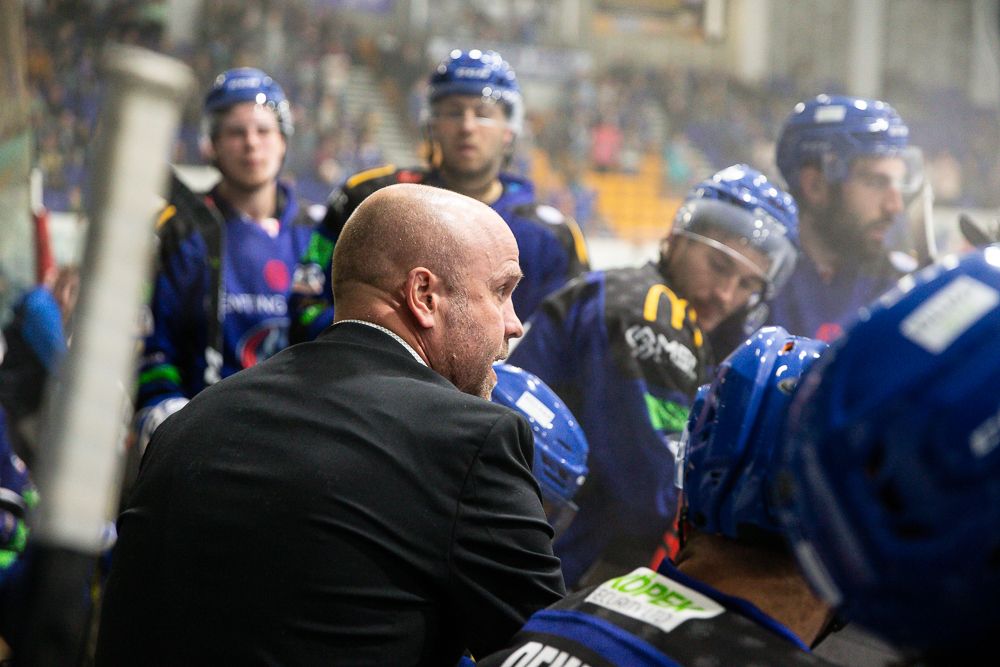Explainer: why playing behind closed-doors is unsustainable for the EIHL
The Elite Ice Hockey League has lived on a coronavirus cliff edge for a while.
Over recent months, the UK’s top-flight hockey competition has postponed games, placed teams into Covid protocol, and – most recently – been hit by policy changes in Scotland and Wales.
It’s also been a tricky season on the ice and in the boardroom for the EIHL. The Glasgow Clan’s campaign started behind schedule due to arena troubles (and COP26), while violent play across the league has forced the Department of Player Safety to intervene with ballooning frequency.
If hockey is a difficult sport to organise at the best of times, imagine what it’s like to run under epidemiological conditions that pose an existential threat.
With that in mind, let’s turn our attention to the situation in Scotland and Wales – where first ministers have re-introduced measures to combat the Omicron variant.
This new form of coronavirus could infect large numbers of people in Wales
– Mark Drakeford
Mark Drakeford – who heads the devolved government in Wales – has imposed a 50-spectator limit on sporting events. In effect, the policy will see elite sport held behind closed-doors – with operating costs too high to host such a small number of fans.
“This new form of coronavirus could infect large numbers of people in Wales, disrupting daily lives and businesses and could cause an increase in the number of people who need hospital care in the coming weeks,” Drakeford said earlier this week.
“We will do everything we can to protect people’s health and livelihoods in Wales – this means taking early action to try and control its spread.”
In response, Todd Kelman, Cardiff Devils GM, said: “We are committed to fulfilling our home and away fixtures as per the original schedule. We will also seek the financial support promised by the Welsh Government for professional sports who are losing out on spectators over this period.”
In Scotland, a 200-person spectator cap is in place for indoor seated events.
The Fife Flyers and Dundee Stars replied in turn: “Professional ice hockey in the UK is essentially nothing without our fans and with a limit of 200 people recently imposed on us by the Government, it puts both the Dundee Stars and Fife Flyers in very serious financial danger to keep both clubs pushing on.
“Since the announcement on Tuesday (21 December 2021), we have approached Sport and MSPs to request funding to get us through this difficult period of time. Behind the scenes, we will continue to aggressively pursue the necessary funds to get out of this three-week period of restriction imposed on us.”
In other words, the situation is dicey – and will get dicier if restrictions are reintroduced in England or Northern Ireland.
Unlike the Premier League, or – to make a fairer comparison – the British Basketball League, the EIHL’s business model is predicated on ticket sales and concessions.
Although the Elite League’s broadcast deal with Premier Sports is a step in the right direction, it isn’t the panacea that will make playing behind closed-doors economically sustainable. Streaming games online wouldn’t work either: clubs would sell fewer streams than they do tickets and would also lose out on ancillary matchday income.
So, yeh, the situation is dicey – and depends almost entirely on policy decisions from London, Cardiff, Edinburgh, and Belfast.
However, before we part, I would like to sheepishly present you with a silver lining. On the whole, the way that the EIHL and its clubs have battled through this season has been impressive.
Earlier this week, the Coventry Blaze agreed to face the Devils in Cardiff with less than a day’s notice. Other clubs have made similar gestures, with Glasgow agreeing to adjust their schedule so the Nottingham Panthers would have an opponent to jostle with on Boxing Day.
But those acts of flexibility do not address the underlying issue: that EIHL clubs will be in an impossible position if they are ordered to play the rest of the season behind closed-doors.
And although another abandoned campaign would be a disaster, it would be a price worth paying if it kept the Elite League’s ten clubs afloat. Like the rest of us, hockey bosses will be watching policymakers’ actions very closely over the months ahead.
A new waiting game has begun.

Comments